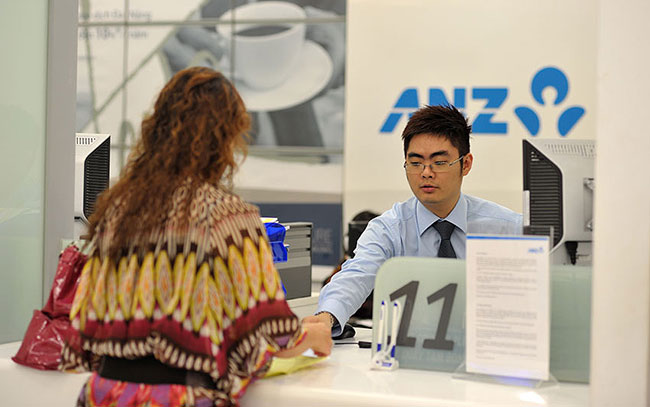Consumer confidence posts larger fall in August

The decline was caused by reduced confidence across all components of the survey. In terms of personal finances, just one third of respondents (31 per cent) said their families are ‘better off’ financially than the same time last year. The figure is the lowest recorded for the indicator since November 2014. On the contrary, 22 per cent - up one per cent from July – of respondents said their families are ‘worse off’ financially.
Nonetheless, 58 per cent (down 5 per cent from July) of Vietnamese respondents said they expect their families to be ‘better off’ financially this time next year, compared to only 6 per cent (up one per cent from July) who expect to be ‘worse off’ financially.
In addition, the ratio of respondents expecting Vietnam to have a sound finance during the next 12 months, down 4 per cent from July to 46 per cent.
“Vietnam finds itself in remarkable stead, having bucked the regional slump into trade-recession, and is the only economy in Asia to post positive export and import growth. This is an environment where consumer confidence – certainly pride – should be flourishing. Instead, consumer confidence fell sharply in August,” said ANZ chief economist South Asia, ASEAN & Pacific Glenn Maguire.
From an economic perspective, he said he could see triggers for the decline, but not a justification for the magnitude of the declines.
During the month, Vietnamese policy makers had resorted to unexpected policy action such as widening the exchange rate band and eventually moving towards a third unexpected devaluation. The surprise devaluation of the Chinese yuan earlier in the month may have also triggered concerns about a loss of Vietnamese competitiveness.
“In our view, the declines in the 12-month and five-year outlook suggest that Vietnamese households may have interpreted prudent policy action by the authorities as signs of weakness,” said Glenn.
However, he continued, the rolling devaluations of the dong during the late 2000s were aligned with economic under-performance and domestic problems, while the dong devaluations in 2015 were aimed at ensuring that an outperforming economy did not see its trade competitiveness wane due to a misaligned exchange rate.
The fact that domestic gold prices have remained low suggest that the fall in confidence has not driven people to seek shelter at one of Vietnam’s favourite safe havens.
“With the Vietnamese economy remaining sure and steady, we note that households are very sensitive to economic news, but expect confidence to stabilise eventually, in line with a resilient economy,” said Glenn.
| Vietnam is not actively participating in a currency war : ANZ Vietnam is not actively participating in a currency war or a race-to-the-bottom as some headlines may suggest, according to a note sent by ANZ Bank, despite its third dong devaluation in the year. |
| BIDV enters strategic partnership with Cathay United Bank and ANZ The Joint Stock Commercial Bank for Investment and Development of Vietnam (BIDV) has signed a comprehensive cooperative agreement for an international five-year loan contract valued at $105 million, and an agreement on money transfer with Cathay United Bank (CUB), a wholly owned subsidiary of Cathay Financial Holding Company Limited, the largest financial holding company in Taiwan. |
| A drop and a record high in consumer confidence ANZ Bank Vietnam has just reported a drop in Vietnamese consumer confidence in July due to lingering feelings of uncertainty about the country’s economic outlook. |
| ANZ supports Vietnamese disadvantaged youths ANZ Vietnam and Blue Dragon Children’s Foundation today announced the successful completion of ANZ Kickstart - a year-long programme which has positively impacted over 120 disadvantaged youths and their families in Vietnam. |
What the stars mean:
★ Poor ★ ★ Promising ★★★ Good ★★★★ Very good ★★★★★ Exceptional
Latest News
More News
- Cashless payments hit 28 times GDP in 2025 (February 04, 2026 | 18:09)
- SSIAM and DBJ launch Japan Vietnam Capital Fund (February 04, 2026 | 15:57)
- Banks target stronger profits, credit growth in 2026 (February 04, 2026 | 15:43)
- Vietnam on path to investment-grade rating (February 03, 2026 | 13:07)
- Consumer finance sector posts sharp profit growth (February 03, 2026 | 13:05)
- Insurance market building the next chapter of protection (February 02, 2026 | 11:16)
- NAB Innovation Centre underscores Vietnam’s appeal for tech investment (January 30, 2026 | 11:16)
- Vietnam strengthens public debt management with World Bank and IMF (January 30, 2026 | 11:00)
- Corporate bond market poised for stronger growth cycle (January 28, 2026 | 17:13)
- Vietnam's IPO market on recovery trajectory (January 28, 2026 | 17:04)




















 Mobile Version
Mobile Version